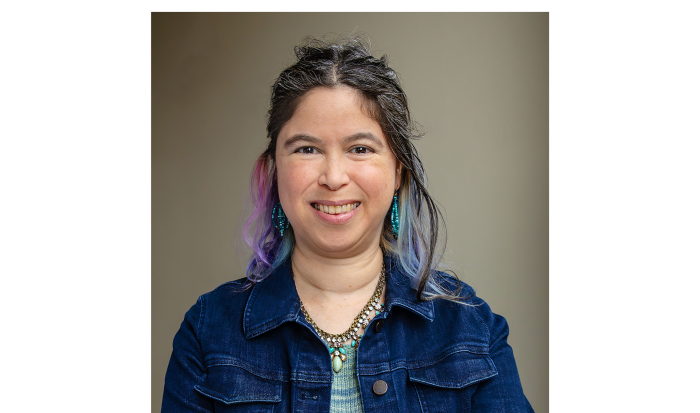
This academic year, Professor of Integrated Science/Physics Andria Schwortz is serving as a visiting assistant professor at Holy Cross College through a teaching exchange program. Holy Cross conducted a national search for this position, which covers classes during faculty leave, and selected Schwortz for the role.
"I’m excited to learn from my peers and gain more exposure to different ways of doing things," Schwortz said.
The exchange has provided Schwortz with the opportunity to implement Holy Cross's studio physics teaching methodology. Unlike traditional physics instruction with separate lecture and lab days, studio physics integrates lecturing, problem-solving, and demonstrations into each class period.
While professors at QCC don't use studio physics, Schwortz pointed out that they employ other engaging techniques that enhance learning. She noted that Associate Professor of Physics My Nguyen practices a "flipped classroom" where students absorb subject information at home and use class time to practice and apply the information they learned.
According to Schwortz, studies show that traditional lecture-heavy methods are becoming outdated. She said there are many resources and workshops on other teaching techniques, but they aren't being utilized.
Schwortz has been conducting a research project with QCC alum Michael Frey, investigating why physics faculty don't attend professional development workshops on innovative teaching methods. The team has interviewed hundreds of physics instructors nationwide and is currently analyzing the data. The teaching exchange may also provide insight into this topic.
Unlike many visiting professors who are recent graduates, Schwortz brings years of teaching experience to Holy Cross.
"My background means I'm experienced in meeting students where they are," Schwortz explained. "I've studied not just physics content, but physics education itself."
Schwortz also serves on the New England section board of the American Association of Physics Teachers (AAPT), representing two-year colleges.
This teaching exchange demonstrates the value of cross-institutional partnerships and provides faculty with opportunities to experiment with innovative pedagogical approaches, something that can be challenging during regular academic schedules. The techniques and insights gained will enrich physics education at QCC.
